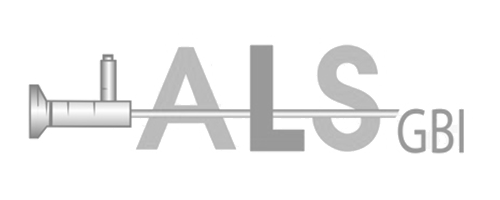COMMON BOWEL CONDITIONS
Mr Patel works with a multi-disciplinary team including radiologists, oncologists and specialist nurses to provide the best possible clinical outcomes. He has expertise in treating patients using the most advanced techniques in bowel surgery including laparoscopic (keyhole) surgery. He also specialises in the treatment of the more common conditions such as haemorrhoids with modern techniques such as the Rafaelo Procedure, Transanal Haemorrhoidal Dearterialisation (THD) and Stapled Haemorrhoidectomy.
An overview of the most common conditions that are treated by Mr Patel are detailed below. For information about any additional bowel conditions not featured within the site, please contact us for more information.
An anal fissure is a painful condition of the back passage caused by a tear in its lining. Most commonly precipitated by constipation and straining, this condition causes intense pain during and after emptying the bowels. It can also be associated with bright red rectal bleeding and a small peri-anal skin tag.
The diagnosis is often clear by the history alone, but gentle inspection (without an internal examination) can identify the fissure.
First line treatment of an anal fissure is the use of topical ointments which help to relax the anal sphincters (special control-muscles), the spasm of which contributes to the pain and problems with healing. The ointments are used in conjunction with gentle laxatives to soften the motions. These conservative measures take up to 2 months to work and are successful in treating anal fissures in 60-70% of patients.
Patients who do not respond to topical treatment or those with severe symptoms may need surgery. The most up-to-date technique is a local injection of Botox (near the back passage). This treatment is successful in up to 80% of patients. Some patients may need a second injection at a later date.
Fissures which do not respond to the above treatment may need further surgery. A lateral sphincterotomy (a limited and controlled division of the anal sphincters) is successful in treating up to 95% of patients, but is associated with problems with incontinence in a few. Some chronic extreme cases require an operation called a mucosal advancement flap (covering the fissure by using the lining of the back-passage adjacent to it).
What should you do if you think you have an anal fissure?
If you suspect (or know) that you have an anal fissure or if you have any of the symptoms described above, you should consult your GP and ask to be referred to Mr Patel. Alternatively, if you are a self funding patient, you can contact us directly through our appointments page.
What can I expect at my consultation?
Mr Patel will take a full history and examine you. Whilst the aim of this consultation will be to diagnose the anal fissure, he will also want to carefully exclude other causes for your symptoms. This may require another camera examination called an endoscopy on a different day.
Once the diagnosis has been established, Mr Patel will counsel you about all your various options and help you choose the treatment that is most suitable and tailored to your individual needs.
An anal fistula is an abnormal tunnel between the back passage (anal canal) and the skin around the back passage. They usually results from an abscess in the region but can also be associated with other conditions such as Crohn’s Disease. Minor quantities of faecal matter from the anal canal pass into the tunnel, leading to cycles of pain, swelling and discharge from a “spot” near the back passage. Some patients may develop this condition after an operation to drain an abscess near the back passage. Others may present with recurrent abscesses to hospital.
How are they treated?
An anal fistula usually does not heal spontaneously and needs surgical treatment. This consists of a series of minor procedures deploying a small rubber band around the tunnel (called a seton). This is done to avoid damaging the anal sphincters which are often traversed by the fistula. Some fistulas that involve only a small part of the sphincters can be dealt with in one session by laying it open.
More recently plugs made up of special bio-synthetic (collagen derived from animals) material have been tried with varying degrees of success. Surgeons have also developed a ligation, excision technique (LIFT procedure) which can be done in one or two stages.
What should I do if I think I have a fistula?
You should consult your GP and ask to be referred to Mr Patel. Self funding patients can also contact us directly through our appointments page.
What can I expect at my consultation?
Mr Patel will take a detailed history from you and examine you including a gentle examination of your back passage with a short telescope. Some patients may need an MRI scan which will be arranged. Mr Patel will then discuss an appropriate surgical plan with you, tailored to your individual need.
Bowel cancer is the third most common cancer in the UK. About 35000 new cases are diagnosed each year with the majority of patients being above the age of sixty. Bowel cancer can however occur in younger people.
Although only 5% of bowel cancers are truly inherited cancers, genetic influences (family history of bowel cancer) appear to be an important. Long standing chronic inflammatory conditions of the bowel such as Ulcerative Colitis and Crohn’s disease are also thought to be important predisposing factors. Environmental influences such as diet and lifestyle (e.g. smoking) have also been indicted.
A majority of bowel cancers are thought to arise from polyps. This has led to the development of the National Bowel Cancer Screening Programme, which aims to diagnose and treat these polyps before they become cancerous or diagnose bowel cancer in the early stages. Screening is currently available to individuals between 60 and 70 years but is being extended to include those between 55 and 75 .
Bowel cancer can cause a variety of symptoms. Those that warrant urgent medical attention include rectal bleeding and /or a change in bowel habit that persists for more than a few weeks. Persistent abdominal pain, nausea and vomiting, unexplained weight loss, and a new lump in the abdomen also warrant urgent medical review. Anaemia with resultant generalised tiredness, lethargy or breathlessness is also recognised as an important presentation of cancer and can often exist without bowel related symptoms. Unfortunately in some patients, bowel cancer remains asymptomatic till the late stages.
The treatment of bowel cancer, the results of treatment and long term outlook (prognosis) depend mainly upon the stage of the cancer at diagnosis (how advanced it is). This is determined initially by scans (CT, MRI) but eventually by microscopic tests conducted on the affected segment of bowel after it have been removed through surgery. A large proportion of patients need surgery as the initial treatment. Some patients with rectal cancer may need chemo-radiotherapy before surgery. About 60% of patients need some form of chemotherapy after their surgery.
On average (across all stages from early to late), about 50% of patients diagnosed with bowel cancer are alive at 5 years. However, the results are much better for patients with the early stages of cancer and for this group a cure is possible.
What should you do if you are concerned?
If you recognise any of the symptoms described above or have any cause for concern, please consult your GP and request a referral to Mr Patel. Self funding patients can also contact us directly through our appointments page.
What can you expect at your consultation?
Mr Patel will take a full history and examine you. The examination may include a quick inspection of your back passage with a short telescope. You may also require a camera examination called a colonoscopy on a different day. Any further tests that may be required will be discussed in detail with you.
What is a polyp
A colonic polyp is an abnormal growth on the lining of the colon, also called the large intestine. Sometimes, a person can have multiple polyps. Some polyps can be flat; others have a stalk.
Polyps are very common and can occur in about 20% of the adult population. Whilst the majority are benign (i.e. harmless), some can be malignant (cancerous). It is thought that the majority of bowel cancers originate from polyps which are left untreated for many years.
Most polyps do not cause any symptoms and are picked up at the time of a camera examination, such as Bowel Cancer Screening. Bleeding and mucus discharge may be caused by some polyps.
The vast majority of polyps can be removed at the time of the camera examination such as a colonoscopy. Occasionally, larger polyps require the removal of the section of bowel through key-hole surgery.
Once, polyps are diagnosed and removed, patients will need regular surveillance through colonoscopy.
What should you do if you are concerned?
If you recognise any of the symptoms described above or have any cause for concern, please consult your GP and request a referral to Mr Patel. Self funding patients can also contact us directly through our appointments page.
What can you expect at your consultation?
Mr Patel will take a full history and examine you. The examination may include a quick inspection of your back passage with a short telescope. You may also require a camera examination called colonoscopy on a different day. Any further tests that may be required will be discussed in detail with you.
What is Diverticular Disease?
Diverticular disease is a very common condition of the large bowel whereby it develops pockets or little pouches on its surface as a result of wear and tear. It is thought that in the UK, by the eighth or ninth decade, almost 80-90% of the population have this condition. It is also getting commoner in the younger population and is now seen in as early as the third or fourth decade.
By and large, the majority of people with this condition are symptom-free or suffer with minor symptoms such as bloating and occasional irregular bowel habits. Some develop inflammation of these areas of wear and tear and have attacks of diverticulitis resulting in abdominal pain, loose motions and fevers. Diverticular disease is also known to cause bleeding which can occasionally be severe. A small group of patients might develop more severe complications such as perforation of the bowel leading to either an abscess formation or, in severe cases, acute peritonitis.
Diverticular disease is easy to diagnose with any of the colonic imaging techniques such as a barium enema, colonoscopy or CT. It is often diagnosed incidentally when these tests are performed to exclude other colonic conditions.
The treatment of this condition depends upon the symptoms or the complications. Minimally symptomatic disease can be treated conservatively with lifestyle and dietary modifications (high-fibre diet, gentle laxatives, etc). Diverticulitis is treated with antibiotics. The more severe complications such as severe diverticulitis, haemorrhage, abscesses and perforations usually require an emergency admission to hospital, with some patients requiring emergency surgery.
Elective/ planned bowel resection for diverticular disease is reserved for patients with recurrent attacks of diverticulitis and those who go on to develop long term complications such as a narrowing or a fistula.
What should you do if you are concerned?
If you recognise any of the symptoms above or have any cause for concern, please consult your GP and request a referral to Mr Patel. Self funding patients can also contact us directly through our appointments page.
What can you expect at the your consultation?
Mr Patel will take a full history and examine you. The examination may include a quick inspection of your back passage with a short telescope. You may also require a further test such as a camera examination called a colonoscopy or an x-ray examination of the bowel called a barium enema on a different day. Treatment will depend upon the severity of your symptoms and the results of these investigations.
What are Haemorrhoids?
Haemorrhoids (often called piles) are very common. Derived from anal cushions (normal part of the anal canal) , they are thought to be precipitated by straining e.g. because of constipation.
Classic haemorrhoidal bleeding is bright red in colour and separate from the motions. It is usually seen on toilet paper but can also be seen in the pan and occasionally the quantity can be alarming. Haemorrhoids can also cause discomfort but are not usually associated with severe pain, unless complicated by a blood clot (peri-anal haematoma). Haemorrhoids can also cause anal irritation and itching by seepage caused by the disturbance of the continence mechanism facilitated by the anal cushions. They can also cause various degrees of anal protrusion/ lump.
Often classified as internal (cannot be seen unless they protrude) or external, the more useful clinical classification refers to the resultant symptoms (1st degree to 4th, depending upon bleeding and protrusion/ prolapse).
First and second degree haemorrhoids are those that bleed alone or bleed and protrude whilst or after emptying the bowels. These can generally be treated through conservative measures such as eating a fibre-rich diet, regulating one’s bowels and avoiding straining. Over the counter ointments may also provide symptomatic relief. Often people will choose to live with minor haemorrhoidal symptoms as long as they have being reassured that their symptoms are not caused by any more sinister. Occasionally treatment with rubber band ligation (in clinic) might be indicated. Some second degree haemorrhoids that bleed regularly/ profusely may need surgery.
Third and fourth degree haemorrhoids are those that have to be repositioned back manually or those that stay out permanently. These often need surgical treatment. There are various surgical options.
Traditional open haemorrhoidectomy has now largely been replaced by newer techniques but still have a role in a small number of extreme cases.
Transanal haemorrhoidal de-arterialisation (THD) is the newest of these techniques whereby each vessel feeding the haemorrhoidal cushions are individually ligated by using a special ultrasound device to locate them. Any prolapse can then be treated by deploying special ‘hitching-up’ stitches. Apart from excellent functional results, the main advantage of THD is that it is a largely painless procedure. The results of THD also improve with time.
A stapled haemorrhoidectomy excises the haemorrhoidal tissues through the use of a special circular stapler gun.
What should you do if you think you have Haemorrhoids?
If you suspect (or know) that you have haemorrhoids and if you have any of the symptoms above, you should consult your GP and request a referral to Mr Patel. Alternatively, self funding patient can also
What can you expect at the your consultation?
Mr Patel will take a full history and examine you. The examination may include a quick inspection of your back passage with a short telescope. Whilst the aim of this consultation will be to diagnose your haemorrhoids and their severity, he will also want to carefully exclude other causes for your symptoms. This may require another camera examination called an endoscopy on a different day.
Once the diagnosis and severity have been established, Mr Patel will counsel you about all your various options and help you choose the treatment that is most suitable and tailored to your individual needs.
Inflammatory bowel disease is a general term used to describe diseases that causes intestinal inflammation.
There are two main forms of Inflammatory Bowel Disease. These are known as Crohn’s Disease or Ulcerative Colitis which are both long-term (chronic) diseases which cause inflammation in the gastrointestinal tract- also known as the gut or bowel.
Indeterminate Colitis is a medical term used to describe inflammation of the large bowel that could be caused by either Crohn’s Disease or Ulcerative Colitis. With both conditions the chances of developing either increases if there is a close family relative who also has the same condition.
Another form of inflammatory bowel disease is Microscopic colitis which is less common and is only detected by taking a tissue sample (biopsy) from the bowel.
One of the main differences between Crohn’s disease and ulcerative colitis is the part of the gastrointestinal tract that is affected. In cases of ulcerative colitis inflammation only affects the colon and rectum (large bowel). In cases of Crohn’s disease inflammation can occur anywhere in the digestive tract from the mouth to the anus however the small intestine and in particular the part known as the ileum is the commonest part affected.
What is Pruritis Ani?
Pruritis ani or irritation and itching of the sensitive skin around the back passage is a common condition that afflicts many patients and can be extremely vexing and frustrating. Although it can be caused by a variety of conditions, it is most commonly aggravated by the use of dry toilet paper resulting in incomplete cleaning, the resultant remnant residue causing irritation of the sensitive skin. Pruritis ani can also be caused by minor incontinence (seepage or leakage) from any anal disorder (such as haemorrhoids or fissures). Threadworms can often be the culprit. Fungal infections, some underlying skin conditions, certain foods, and detergents and perfumed soaps can also contribute.
A majority of patients are helped by changing perianal toileting habits: stopping using dry toilet paper; either by using wet wipes (baby wipes) or by using water for ablution. Barrier creams such as Sudacreme is also very useful.
Patients who have persistent symptom despite the above measures may need medical treatment with topical ointments for a short duration. Threadworm infestation will need treatment with oral medications. Some patients may need a skin biopsy.
What should you do if you think you have Pruritis Ani?
If you suspect (or know) that you have this condition and if you have any of the symptoms above, you should ask your GP to be referred to Mr Patel. Alternatively if you are a self paying patient you can contact us directly through our appointments page.
What can you expect at the your consultation?
Mr Patel will take a full history and examine you. The aim of this consultation will be to diagnose your condition and find the cause. This may require another camera examination called an endoscopy on the same or different day.
Once the diagnosis has been established, Mr Patel will counsel you about all your various options and help you choose the treatment that is most suitable and tailored to your individual needs.
Irritable Bowel Syndrome (IBS) is a very common disorder and can affect up to 20% of the adult population. Its causes are poorly understood. IBS is a functional disorder; the function of the bowel may be affected but there are no structural abnormalities.
IBS causes a variety of symptoms. Patients may experience abdominal cramps, irregular bowel habits (looseness or constipation or both at different times), bloating and wind. Stress can be an important contributing factor.
IBS is a diagnosis of exclusion, i.e. other more serious conditions that cause similar symptoms should be excluded before attributing them to IBS. Once the diagnosis has been made, IBS is usually managed through dietary changes and lifestyle modifications. Patients with more severe symptoms may benefit from prescribed medicines.
What should you do if you are concerned?
If you are concerns or have any of the symptoms above, you should consult your GP and request a referral to Mr Patel. Alternatively, self funding patient can also contact us directly through our appointments page.
What can you expect at the your consultation?
Mr Patel will take a full history and examine you. The examination may include a quick inspection of your back passage with a short telescope. He will also want to carefully exclude other causes for your symptoms. This may require another camera examination called an endoscopy on a different day.
Once the diagnosis and severity have been established, Mr Patel will counsel you about all your various options and help you choose the treatment that is most suitable and tailored to your individual needs.
The first and most important point to remember is that everyone with a bowel problem can be helped and many can be completely cured.
If you have been diagnosed with bowel (faecal) incontinence, IBS, Colitis, Crohns, constipation or other bowel problems you can find out more information about the various treatment options here.








